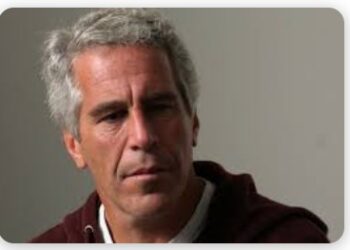While Andrew Breitbart was not a close friend, he was a friend nevertheless.
He was singularly responsible for introducing me around 2011-2012 to the Hollywood conservatives that made up the "Friends of Abe." Andrew set up a dinner party at one of the finest steakhouses around for me to meet many of them, then paid for it himself.
​Perhaps Andrew was not as influential as the great Rush Limbaugh, but he definitely had a powerful voice, a reputation as the "Happy Warrior" on the right. Most people know Andre Breitbart for his maxim, "Politics is downstream of culture," while forgetting that he did much to try to change that culture by joining with Matt Drudge to establish the original (conservative) DrudgeReport before it was sold to hyenas masquerading as social commentators. He then founded Breitbart.com, which today ranks with The Epoch Times as one of the leading daily news sources for conservatives.
​But there was something about that "politics is downstream of culture" view that always bothered me, namely that conservative culture warriors increasingly had found themselves shut out after Breitbart's untimely death. I was in the arena at the time, trying desperately to get someone to fund a video version of my #1 bestselling history book, A Patriot's History of the United States. I have told this story elsewhere but it bears repeating here so that the War Room audience understands what we cultural warriors are up against.
​My background was rock and roll, coming within a hair of big-time. We were opening concerts for such second-tier acts (at the time) as Steppenwolf, Savoy Brown, and the James Gang. We were pals with the Allman Brothers. The Who sat through our set at the Troubadour, with Pete Townsend slapping me on the back afterwards (drunk as a skunk) saying "Good show, wot?" Our self-pressed record drew excellent reviews from the bigs, Cashbox, Record World, and Billboard. That's when it fell apart and (a story for another day) I ended up with a Ph.D. in history and a job at a major American university.

​But I never forgot the lessons about marketing, pop culture, audience appeal, and shifting commercial trends that I learned as a drummer. Moreover, as a professor, I was deeply impressed (as were my students) with the 1970s videos by Milton Friedman that appeared on PBS called "Free to Choose." I made heavy use of movie clips in my instruction, much to the students' approval. (They especially loved it in my military history course when, having shown them a horrifically bloody scene from "The Messenger" I said, "Now, prepare yourselves, cuz this is really gory" then treated them to the scene from "Monty Python and the Holy Grail" where the Black Knight loses both arms and legs and says, "All right. We'll call it a draw!").
​By the late 1990s, I knew two things were certain. First, for a variety of reasons even then, students were reading less. After iPhones, they didn't read at all except for the basics. (See my book All Thumbs: How our Obsession with Cell Phones has Damaged our Children and Restructured Our Lives)* Research was showing that two-thirds of American "Youts" (to quote "My Cousin Vinny") do not read a single article or book in a year that is not required as an assignment at school!
​The second reality was that they were watching far more videos, often in shorter clips. These ranged from five to twenty minutes. This power and value of video was impressed upon me further in 2004 when PBS (!!) of all places released a series featuring Sir Harold Evans called "They Made America: From the Steam Engine to the Search Engine." You may know that his wife is Tina Brown, scion of New York literature and social connivances, but Sir Harry is no liberal loon. His series featured episodes on John Fitch (inventor of the steamboat), A.P. Giannini (founder of Bank of America), Sam Colt (Mr. Six Shooter himself), and Thomas Watson, Jr. These were engaging 20-minute videos. Yes, they had some talking heads, but the majority of the story was carried by high-value recreations, by the narration of David Ogden Steirs, and a good soundtrack.
​My students were almost always attentive. Few ever wandered or fell asleep. This engagement was soon reinforced by PragerU videos, all strictly kept to no more than four minutes. Prager U was fantastic, and I did two (each with over one million views). But the more I watched Prager U, the more the weakness of the platform struck me: the videos were all over the map. You could see one about lower taxes, one about affirmative action, one about religious toleration. Eventually, a student would be linked to similar videos but there was no clear overarching view or "spine." Thus trying to drive home a message about how conservative principles informed everything was tenuous at best.
​So when I tried to do just that with the Patriot's History series, I went to every major conservative think-tank. Every time, I got the same response: "We don't do video." (This was 2008-2012). Heritage, AEI, CATO, Young America's Foundation—none wanted to commit long term to video projects, and certainly not to "Hollywood" type video that would not be a celebration of the organization itself.
​This was what Andrew meant by "Politics is downstream of culture." Every day, in almost every single cultural medium, young people are assaulted by value-free leftism, relativism, and hostility to the most common-sense human freedoms and natural rights. For almost 40 years, conservatives were obsessed with Hollywood, schools, and the media—which of course were becoming cesspools—but were overlooking other critical shapers of culture, most notably big business in the form of Big Tech.
​In a remarkable article called "An Open Letter to the Coming Republican Majority," writing under the pseudonym Withered Rose, the author points out that largely out of a desire to prevent World War III, NGOs such as the Tavistock Institute undertook a "long march" to push the destruction of nationalism (evil, dontcha know?), sex differences (transoidism), and any ability to identify people by race or class. This, Rose writes, would prevent cultures from mobilizing for war. To this, we might now note that the "wokeism" of the military further diminishes any woke nation's ability to fight.
​Withered Rose notes that not long ago an economic center of Titans of Industry (my phrase) such as Carnegie, Rockefeller, Mellon, Vanderbilt, Morgan and others bankrolled cultural institutions personally. You see their names affixed today, and in many cases with the woke successors trying to remove said names! This, Rose argues, has been replaced by a new non-Marxist approach that in fact "declares money to be all-powerful" and which recognizes the crucial need for artists to survive financially. Thus the new NGOs have become the uber-sponsors, allowing music on platforms, setting up corporate support for artists in advertising outlets, and so on.
​Here's the key, and how it relates to Breitbart: Virtually all of the emphasis of the new Wokies is directed at eliminating the middle class through regulations on the family farm, the abolition of private home ownership via inflation, the abolition of inheritance through taxation, and so on. You may recognize all of this in a different form from the last pages of the Communist Manifesto. Or you might have heard it more recently in the phrase that Americans "will own nothing and be happy."
Private wealth acquisition and funding of (largely conservative) culture has been replaced by these NGOs and woke corporations that, in turn, push the woke culture that Andrew warned about.
​And this is what had me disturbed, as after my bout with the think tanks and conservative millionaires who preferred to sink $1 million into a losing candidate rather than into a winning movie. I saw no way out. It seemed there was no escape from Breitbart's Box. But Withered Rose has given me hope, and in fact argued that if "politics is downstream of culture," then "culture is downstream of economics." Now we had a fighting chance, especially with MAGA/America First/Donald Trump-type policies, for now, we restored the emphasis on the middle class, on American manufacturing, on trust-busting the tech wokesters, on strengthening the real U.S. military and taking it out of the hands of squidnipples like Thoroughly Modern (Gen.) Milley. With good economic policies, we can break up or limit Vanguard and Blackrock unless they commit to a nationalist American agenda,
​A reawakened, re-empowered middle class will again become the focus of real marketing and advertising, not simp-dripping propaganda with "two married men and a baby" nonsense. Freed from the chains of the NGO wokeism, and once again with new titans of prosperity empowered by their self-earned wealth, these "captains of industry must use their economic position, their freedom from necessity, to influence their local politics, lobby for good men to run libraries, schools, and universities . . . ." We could reinstate decency codes in Hollywood, once again award true heroism (not Harvey Milks, but Bravehearts).
​In short, there is a way out of the Breitbart Box, and it begins at the ballot box and continues through solid legislation that again restores power to the real engine of democracy, America's Middle Class.
Larry Schweikart is the co-author of the New York Times #1 bestseller A Patriot's History of the United States with Michael Allen; author of Reagan: The American President and Dragonslayers; Six Presidents and their War with the Swamp; and producer of the documentary "Rockin' the Wall" shown on PBS in 2010. His websites are www.wildworldofhistory.com and www.wildworldofpolitics.com



![Bannon’s WarRoom, Show Clip Roundup 10/17/2024 [PM]](https://warroom.org/wp-content/uploads/2024/10/GQ-06-Bannon-061517-350x250.webp)
